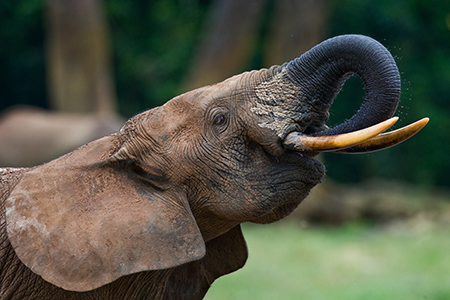 Animals and Culture, Wildlife Conservation
Animals and Culture, Wildlife Conservation  No Comments
No Comments Shocker: Tweets on Elephant Issues are Generally Western-Centric, Narrow in Scope, and Lead to Resentment
A new study analyzing tweets about elephants reveals a disconnect between the conservation issues Twitter users care about versus the numerous threats these animals actually face. It also shows that 73% of the users voicing opinions on vital conservation issues don’t live in countries with elephant populations, and that Twitter users who live alongside elephants resent the way they are portrayed by western social media users.
Some of the top threats to elephants are poaching, habitat loss, and human-elephant conflict. However, western Twitter users are concerned primarily with poaching, and show far less interest in the other key threats. Most troubling, some westerners demonstrate a callous, or even hostile view toward communities that live near elephants. Nobody wants to see these majestic creatures go extinct, but when more concern is shown over the life of an elephant than a dead farmer, it is understandable when bad blood arises.
We can’t say this study’s findings come as a surprise (are you surprised?). However, shining an academic flashlight on these misunderstandings is vitally important when it comes to preserving elephants and the communities that live near them. Successful conservation efforts require both political will and a clear understanding of the problems at hand. Preserving elephants is a huge task. If resources are misallocated and resentment festers between the stakeholders (the sacrifices made for conservation by communities in Batswana which are rarely acknowledged on social media, for example), that task becomes even more difficult.
Resources
★ Shrinking spaces for the world’s largest land animal
★ Africa’s elephants more endangered by poaching, habitat loss

